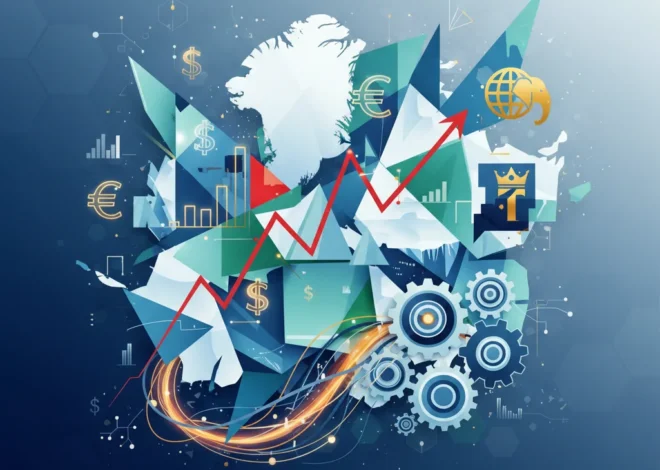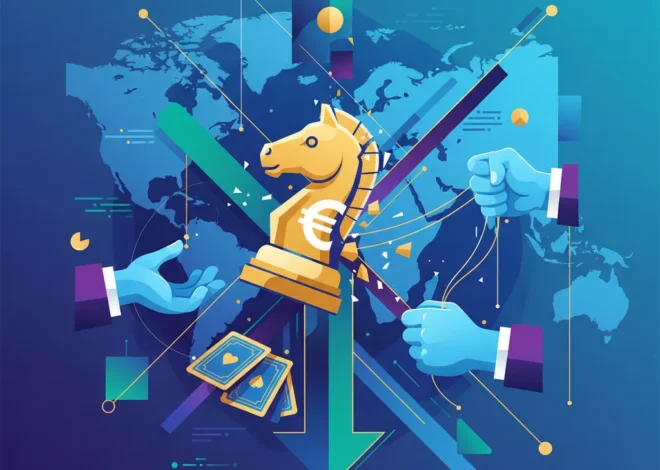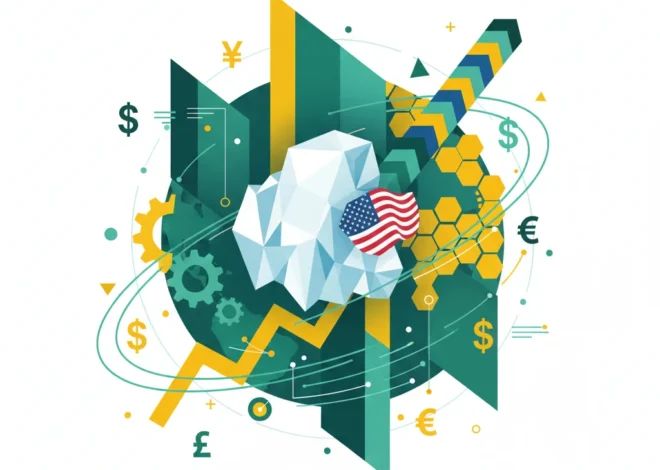
The Trillion-Dollar Pivot: How Qatar’s Financial Muscle is Reshaping Global Alliances
The Unseen Battlefield: Where Capital is King
In the intricate chess game of international relations, the most powerful moves are often the quietest. While global attention remains fixed on the fragile ceasefire in Gaza, a seismic shift in geopolitical influence is occurring behind the scenes. The recent diplomatic maneuvering by the Trump administration, as highlighted in an analysis by Lawrence Freedman for the Financial Times, reveals a stark choice made between two key U.S. allies: Israel and Qatar. The decision to lean on Qatar as the primary mediator signals more than a temporary strategic pivot; it underscores a new reality where financial power and economic leverage are becoming as decisive as military might.
For decades, the U.S.-Israel alliance was considered an unshakeable pillar of Middle East policy. Yet, as the Gaza crisis unfolded, Washington found its influence limited. It was Qatar, a tiny Gulf state with an outsized economic footprint, that held the keys to negotiation with Hamas. This development is not just a foreign policy footnote; it’s a critical data point for investors, finance professionals, and business leaders. It demonstrates how the global economy is intertwined with diplomacy and how a nation’s sovereign wealth can become its most potent strategic asset, capable of altering alliances and influencing outcomes on the world stage.
A Tale of Two Allies: Military Might vs. Financial Diplomacy
To understand this pivot, one must look beyond traditional metrics of power. The United States was faced with two starkly different partners, each offering a unique set of strategic advantages. Israel represents a long-standing military and intelligence powerhouse, deeply integrated with U.S. defense architecture. Qatar, on the other hand, represents a newer, more transactional form of influence, built on a foundation of immense wealth, energy dominance, and a willingness to maintain open channels with all parties, including those the West will not engage with directly.
The Trump administration’s choice was a pragmatic one, driven by immediate needs. While Israel could offer military solutions, Qatar could offer dialogue and, crucially, financial incentives. Qatar has been a significant financial backer of Gaza for years, a policy once supported by Israel as a way to maintain stability. This financial leverage, combined with its diplomatic ties to Hamas’s leadership, made Doha indispensable in the hostage negotiations. According to reports, former President Trump recognized this leverage, viewing Qatar’s role as essential to de-escalation (source).
Below is a comparison of the strategic assets each nation brings to its relationship with the United States, illustrating the different forms of leverage at play.
| Strategic Asset | Israel | Qatar |
|---|---|---|
| Primary U.S. Military Value | Intelligence sharing, advanced military technology, regional military deterrence. | Hosts Al Udeid Air Base, the largest U.S. military installation in the Middle East. |
| Economic Power | High-tech “Silicon Wadi” economy, strong defense industry. | World’s third-largest natural gas reserves; major LNG exporter; ~$475 billion sovereign wealth fund. |
| Diplomatic Leverage | Strong ties with the U.S. and Europe; Abraham Accords. | Maintains open channels with Iran, Hamas, and the Taliban; acts as a key mediator. |
| Financial Influence | Significant recipient of U.S. aid; robust internal stock market. | Deploys massive capital globally through the Qatar Investment Authority (QIA). |
This table clarifies the dilemma: choosing between a traditional military ally and a financial and logistical linchpin. The decision to favor Qatar’s diplomatic track highlights a shift in the global economics of power, where hosting a critical military base and controlling vast pools of investment capital can grant a nation influence far beyond its size.
Digital Dollars, Analog Banks: The Hidden Forces Stalling America's Financial Future
The Qatari Playbook: How Wealth Becomes Power
Qatar’s rise as an indispensable diplomatic player is no accident. It is the result of a deliberate, decades-long strategy to convert its immense natural gas wealth into unshakable international relevance. The nation has meticulously positioned itself as a neutral intermediary, a role underwritten by its financial clout. This strategy has two primary pillars: energy and investments.
First, as one of the world’s top exporters of liquefied natural gas (LNG), Qatar is a critical node in the global energy supply chain. This gives it significant leverage, particularly with energy-dependent nations in Europe and Asia. The stability of global energy trading often hinges on Qatar’s uninterrupted production.
Second, and perhaps more importantly, is the Qatar Investment Authority (QIA). With assets estimated at over $475 billion, the QIA is one of the world’s most powerful sovereign wealth funds. It uses strategic investing to embed Qatari interests within the bedrock of the Western economy. By acquiring significant stakes in strategically important companies and real estate, Qatar ensures that the world’s leading economies have a vested interest in its own stability and prosperity. This intricate web of investments acts as a powerful deterrent against political and military pressure.
Implications for the Global Investor and Business Leader
This geopolitical recalibration in the Middle East is not an abstract foreign policy debate. It has tangible consequences for the global financial landscape, impacting everything from energy prices to risk assessment models.
- Geopolitical Risk Re-evaluation: Investors must now weigh the influence of “soft power” assets, like sovereign wealth funds and diplomatic channels, as heavily as “hard power” assets like military strength. A country’s role as a mediator can be a sign of stability, while an over-reliance on a single, traditional alliance could become a liability. This changes the calculus for anyone with exposure to the regional stock market or international corporations operating there.
- Energy Market Stability: Qatar’s central role reinforces its importance in the global energy market. Any instability involving Qatar could have a far more dramatic impact on LNG prices and energy security than previously modeled. This makes Qatari stability a key variable in energy sector investing.
- The Future of Foreign Policy and Finance: This event serves as a blueprint for other capital-rich nations. We are likely to see a growing trend of countries using their sovereign wealth to pursue foreign policy objectives, creating both opportunities and new, complex risks. Understanding the intersection of international finance and statecraft is no longer optional for global business leaders.
The U.S. dependence on the Al Udeid Air Base, which serves as the forward headquarters for U.S. Central Command, is the ultimate insurance policy for Qatar. As noted by Freedman, closing this base would be a logistical nightmare for the Pentagon, making Qatar an almost immovable partner (source). This military reality, combined with Qatar’s financial and diplomatic indispensability, created a situation where the choice for the Trump administration became, in hindsight, almost inevitable.
The Business of Snow: Uncovering Investment Slopes in the 2025 Winter Sports Economy
Conclusion: A New Era of Economic Statecraft
The decision to prioritize Qatar’s role in the Gaza conflict is a watershed moment, revealing the evolving dynamics of global power. It’s a clear signal that in an increasingly interconnected world, the levers of influence are diversifying. While military alliances remain crucial, the ability to write checks, mediate complex disputes, and control critical infrastructure and resources is creating a new hierarchy of power.
For those in the world of finance, investing, and business, the lesson is profound. The geopolitical landscape is being redrawn not just by diplomats and generals, but by fund managers and energy traders. The rise of Qatar is a case study in 21st-century statecraft, where the strategic deployment of capital is reshaping alliances, resolving conflicts, and creating a new world order. Understanding this nexus of money and power is essential for navigating the opportunities and risks of the global economy ahead.


